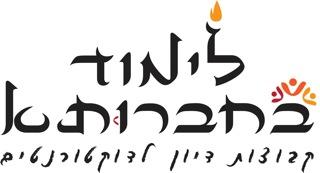במפגש זה קראנו טקסטים מסוף המאה הז' לפנה"ס, בתפר שבין הארמית הקדומה לארמית הממלכתית: הכתובת המלכותית הראשונה של בר־רכב משׂמאל (זינג'ירלי, טורקיה) ושתי כתובות הקבר של כמרי סהר אל הירח מנרב (א־נירב, סוריה). את המפגש הנחה ירוסלב מודרון, החוקר את לשון הטקסטים הללו כחלק מעבודות הדוקטורט. מטרת העיון היה להבחין בתהליך הגיבוש של סטנדרט לשוני, מן הדיאלקטים הארמיים המקומיים לארמית הממלכתית, אשר השפיעה על כל ניבי הארמית שבאו לאחריה. תוך כדי הקריאה הבחנו בין תופעות המשותפות לכתובות הקדומות יותר מחד, ולתופעות המשותפות לארמית הממלכתית (ויתר הניבים המאוחרים) מאידך. כמו כן, בחנו כמה פתגמים מתוך משלי אחיקר הארמיים שנמצאו ביב, שהם מימי הארמית הרשמית, אך עוד מגלים זיקות לרבדים הקדומים יותר של השפה. במהלך קריאת הטקסטים גם נשאנו ונתנו בשחזור התנועות של הארמית בתקופה זו, והאם מוטב לשחזרן על פי מסורות הניקוד של הדיאלקטים המאוחרים או לפי ההשוואה ללשונות שמיות אחרות.
משתתפים: איתי קגן, אלון ברנד, ירוסלב מודרון, פטרה שמידטקונץ, חגי עמנואל, שלומי אפרתי, אריה צורף, בנימין סושרד.
Eighth Session (4/29/2021): Late Old Aramaic—The Barrākib Inscription and the Nerab Tomb Inscriptions
In this session we read texts from the end of the 7th century BCE, on the seam between Old Aramaic and Imperial Aramaic: the first royal inscription of Barrākib of Samˀal (Zincirli, Turkey), and the two tomb inscriptions of the priests of the lunar deity Sehar from Nerab (An-nayrab, Syria). The session was led by Jaroslav Mudron who is studying the language of these texts as part of his dissertation. The goal of the study was to discern the gradual formation of a linguistic standard, from the local Aramaic dialects into Imperial Aramaic, which has influenced all subsequent Aramaic dialects. During our reading we distinguished between the characteristics shared with the older inscriptions on the one hand, and the ones shared with Imperial Aramaic (and later dialects) on the other. Likewise, we studied a few proverbs from Aramaic Aḫiqar from Elephantine, which are in Official Aramaic, yet have traces of the older idiom. Additionally, during the reading of the texts we debated over the reconstruction of the vocalization of the Aramaic of this period, considering the merits of reconstruction based on vocalized later dialects versus that which is based on comparison with other Semitic languages.
Participants: Itai Kagan, Alon Brand, Jaroslav Mudron, Petra Schimdtkunz, Chagai Emanuel, Shlomi Efrati, Arye Zoref, Benjamin Suchard.




